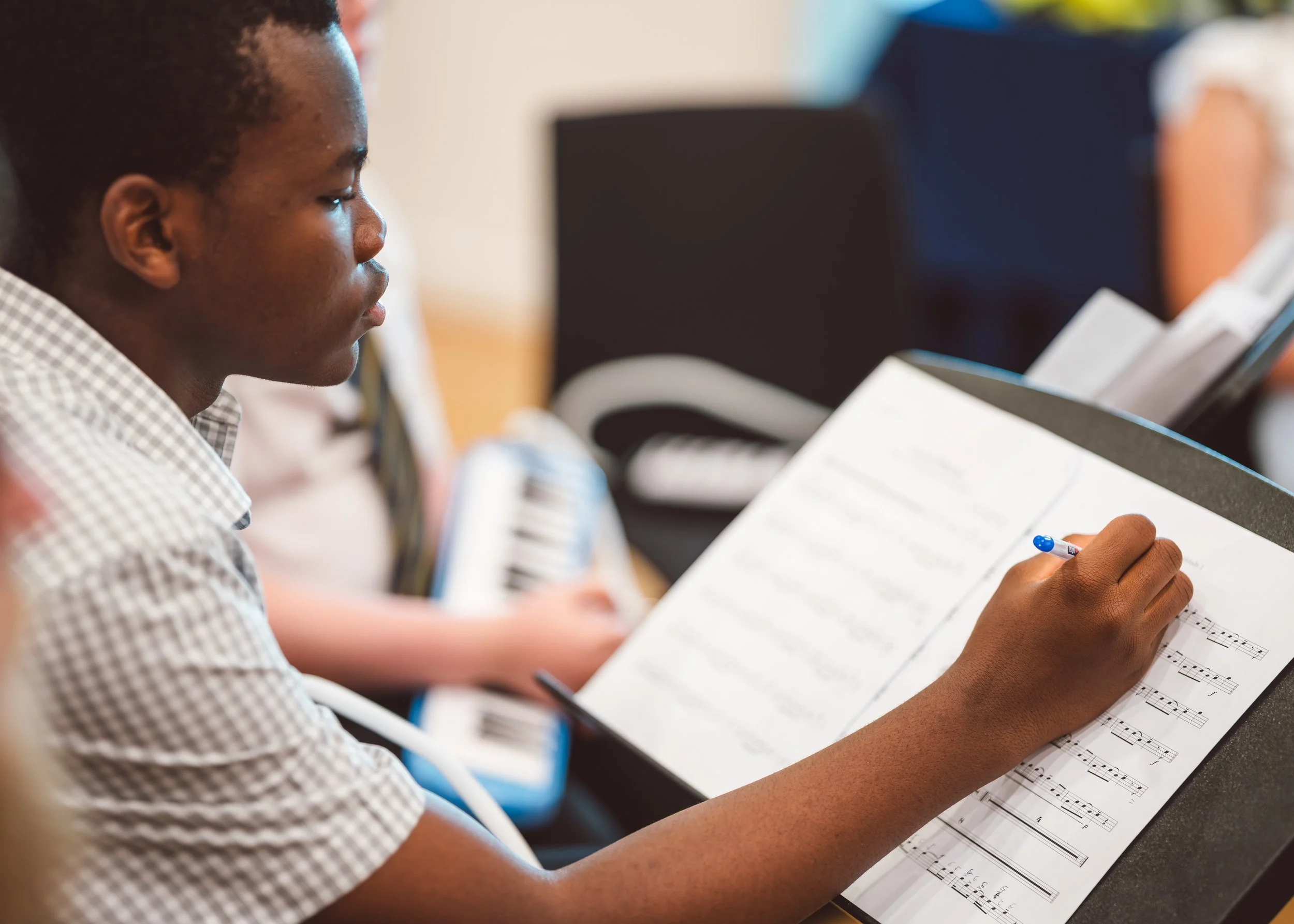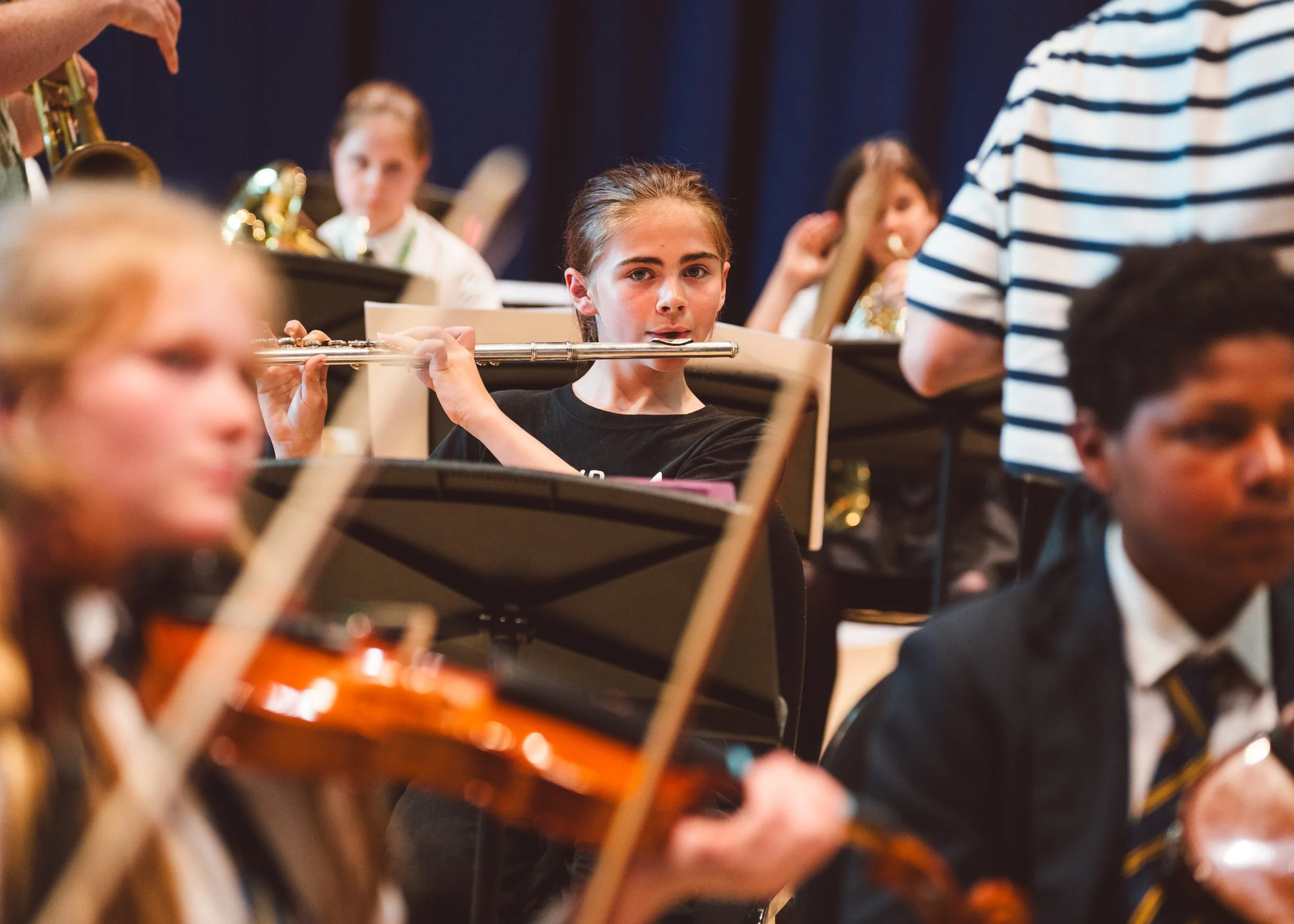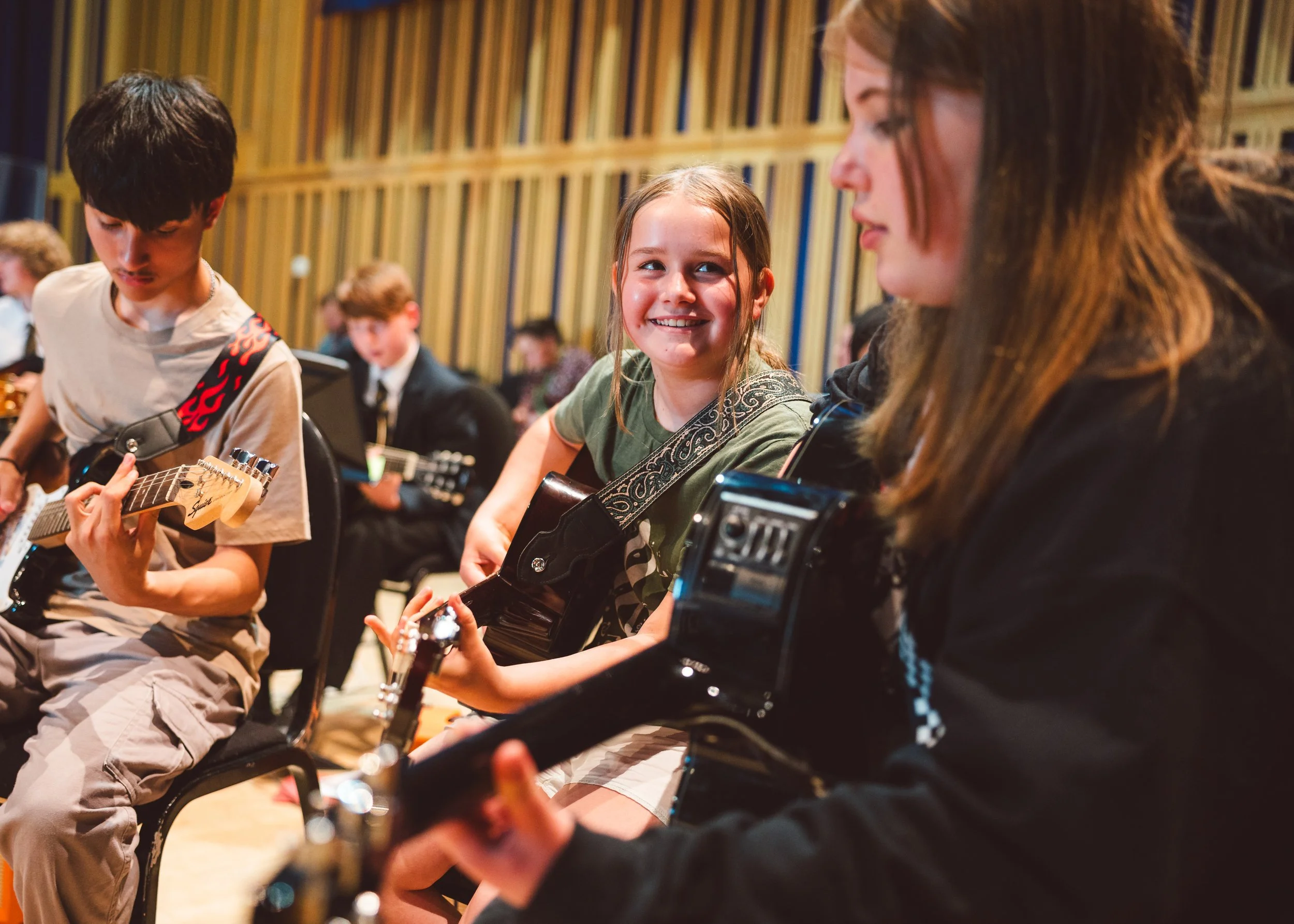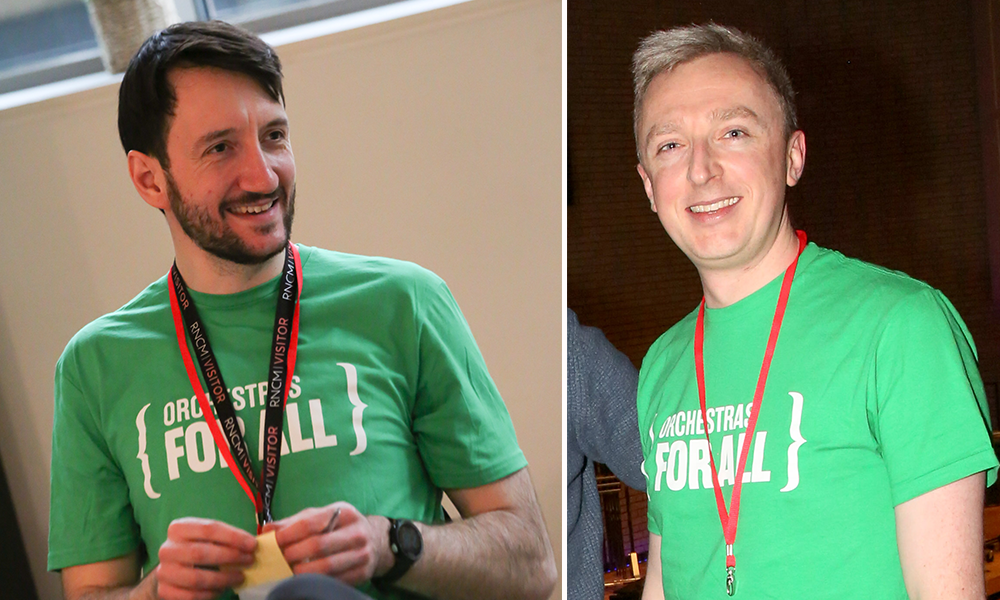The music in the running…
This summer, young musicians from across the UK came together at our Modulo meets in Manchester, Birmingham, London and Gateshead. During exciting days of ensemble music-making, we asked participants to share their suggestions for the next season’s repertoire.
From classical favourites to iconic pop hits, the suggestions were wonderfully diverse. With the help of our Youth Board, we’ve narrowed it down to a final shortlist.
Now we want to hear from you – our community!
Pictured: Modulo members performing together at our last Summer meet!
Shaped by and for young people
From writing suggestions on post-it notes to national performances; the repertoire vote is a chance for participants to make their mark on the programme. In partnership with our Youth Board, this process is one example of the ways Orchestras for All ensures young voices are steering the direction of our Modulo programme.
Modulo is all about breaking down barriers to ensemble music-making. It enables young people in state schools and community groups to experience the joy of performing together, and welcomes all instruments, abilities and backgrounds.
Once the chosen piece is selected, teachers and music leaders will be provided with resources and practical tools to make learning the 2025/26 Modulo repertoire flexible, accessible and inclusive for the participating young musicians.
Read more: Orchestras for All joins Music Mark’s podcast to talk youth voice and leadership
Pictured: Modulo members enjoying playing music together in the guitar section
What’s next?
We’ll be announcing the selected piece soon, alongside the launch of a brand-new season of Modulo!
Make sure you’re the first to hear and keep up to date with other exciting Orchestras for All news by signing up to our newsletter.



































